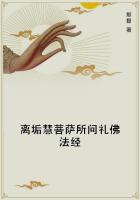Society, as it appears to the political economist, is civil society, in which each individual is a totality of needs and only exists for the other as the other exists for him -- insofar as each becomes a means for the other. The political economist, like politics in its rights of man, reduces everything to man -- i.e., to the individual, whom he divests of all his determinateness in order to classify him as a capitalist or a worker.
The division of labor is the economic expression of the social nature of labor within estrangement. Or, rather, since labor is only an expression of human activity within alienation, an expression of life as alienation of life, the division of labor is nothing more than the estranged, alienated positing of human activity as a real species-activity or as activity of man as a species-being.
Political economists are very unclear and self-contradictory about the essence of the division of labor, which was naturally seen as one of the main driving forces in the production of wealth as soon as labor was seem to be the essence of private property. That is to say, they are very unclear about human activity as species activity in this its estranged and alienated form.
Adam Smith:
"The division of labor... is not originally the effect of any human wisdom.... It is the necessary, though very slow and gradual consequence of the propensity to truck, barter, and exchange one thing for another. Whether this propensity be one of those original principles of human nature... or whether, as seems more probably, it be the necessary consequence of the faculties of reason and of speech it belongs not to our present subject to inquire. It is common to all men, and to be found in no other race of animals.... In almost every other race of animals the individual when it is grown up to maturity is entirely independent.... But man has almost constant occassion for the help of his brethren, and it is in vain for him to expect it from their benevolence only. He will be more likely to prevail if he can interest their self-love in his favor, and show them that it is for their own advantage to do for him what he requires of them.... We address ourselves not to their humanity but to their self-love, and never talk to them of our own necessities but of their advantages."
"As it is by treaty, by barter, and by purchase that we obtain from one another the greater part of those mutual good offices that we stand in need of, so it is this same trucking disposition which originally gives occassion to the division of labor. In a tribe of hunters or shepherds a particular person makes bows and arrows, for example, with more readiness and dexterity than any other. He frequently exchanges them for cattle or for venison with his companions; and he finds at last that he can in this manner get more cattle and venison than if he himself went to the field to catch them. From a regard to his own interest, therefore, the ****** of bows and arrows grows to be his chief business..."
"The difference of natural talents in different men... is not... so much the cause as the effect of the division of labor....
Without the disposition to truck, barter, and exchange, every man must have procured to himself every necessary and conveniency of life which he wanted. All must have had... the same work to do, and there could have been no such difference of employment as could alone give occassion to any great difference of talent."
"As it is this disposition which forms that difference of talents... among men, so it is this same disposition which renders that difference useful. Many tribes of animals... of the same species derive from nature a much more remarkable distinction of genius than what, antecedent to custom and education, appears to take place among men. By nature a philosopher is not in genius and in disposition half so different from a street-porter, as a mastiff is from a greyhound, or a greyhound from a spaniel, or this last from a shepherd's dog. Those different tribes of animals, however, though all of the same species, are of scarce any use to one another. The strength of the mastiff is not, in the least, supported for example by the swiftness of the greyhound.... The effects of those geniuses and talents, for want of the power or disposition to barter and exchange, cannot be brought into a common stock, and do not in the least contribute to the better accommodation and conveniency of the species. Each animal is still obliged to support and defend itself, separately and independently, and derives no sort of advantage from that variety of talents with which nature has distinguished its fellows. Among men, on the contrary, the most dissimilar geniuses are of use to one another; the different produces of their respective talents, by the general disposition to truck, barter, and exchange, bring brought, as it were, into a common stock, where every man may purchase whatever part of the produce of other men's talents he has occassion for."
"As it is the power of exchanging that gives occassion to the division of labor, so the extent of this division must always be limited by the extent of that power, or in other words, by the extent of the market. When the market is very small, no person can have any encouragement to dedicate himself entirely to one employment, for want of the power to exchange all that surplus part of the produce of his own labor, which is over and above his own consumption, for such parts of the produce of other men's labor as he has occassion for."
[ Smith, I, p.12,13,14,15 ]
In an advanced state of society "every man thus lives by exchanging, or becomes in some measure a merchant, and the society itself grows to be what is properly a commercial society."
[ Smith, I, pp.20 ] (See Destutt de Tracy: "Society is a series of reciprocal exchanges; commerce contains the whole essence of society.") The accumulation of capitals increases with the division of labor, and vice-versa.
Thus far Adam Smith.













